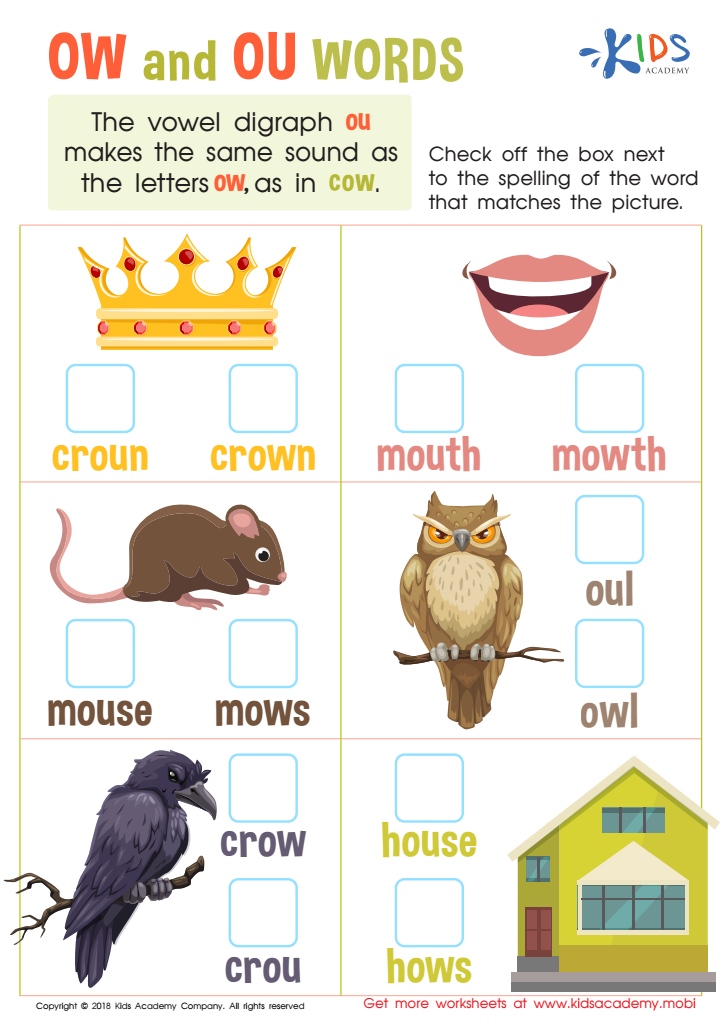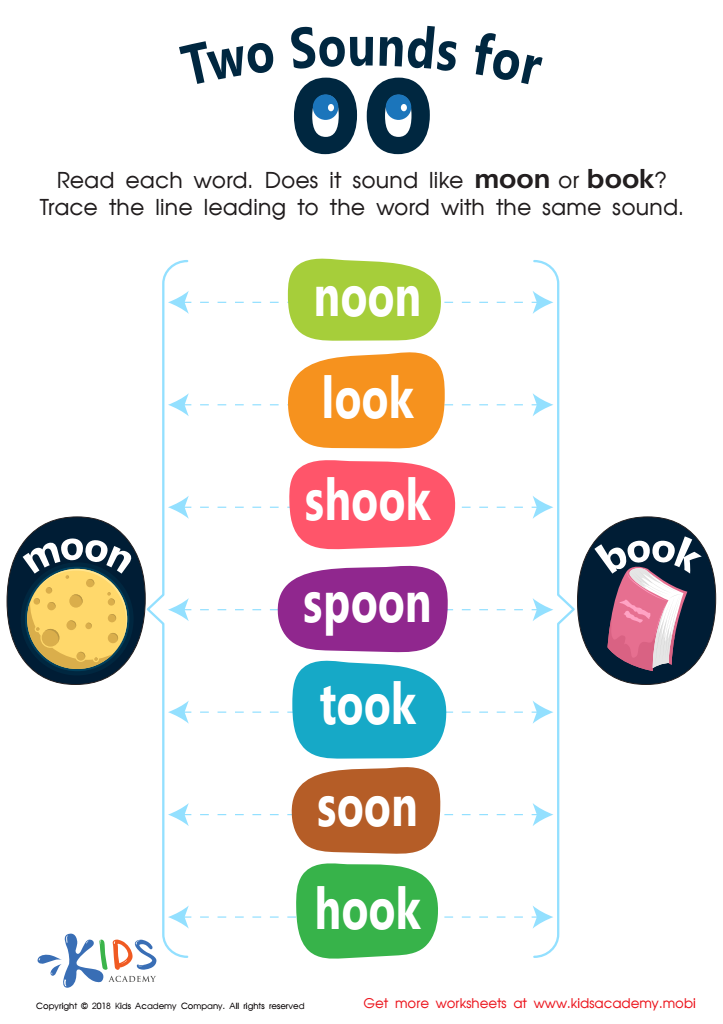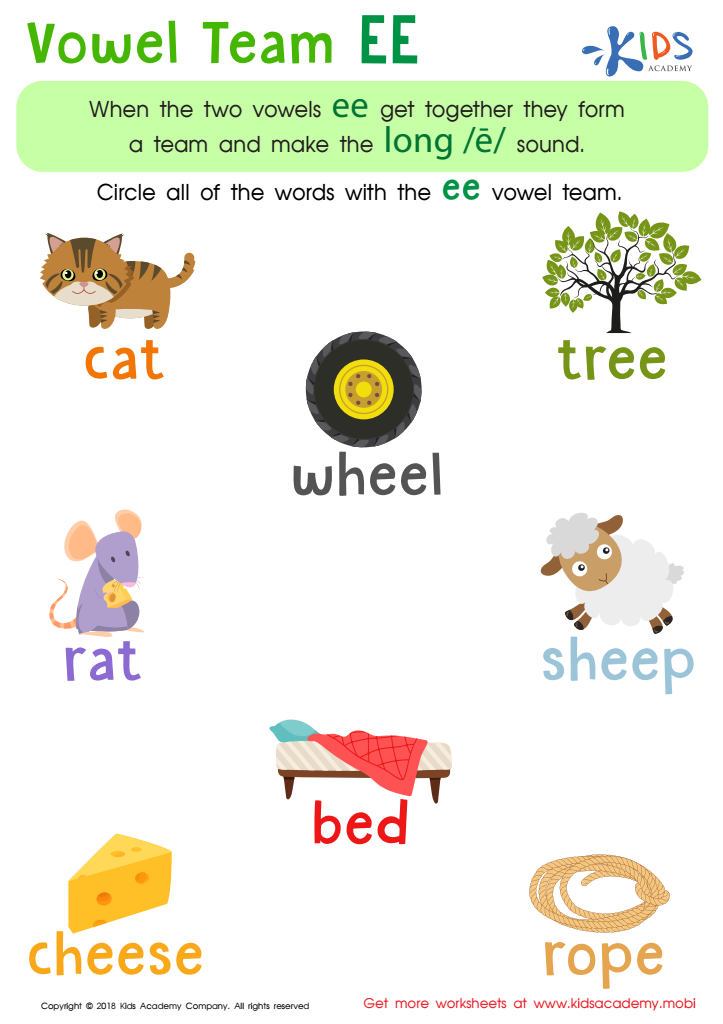Reading fluency Vowels Worksheets for Ages 8-9
3 filtered results
-
From - To
Enhance your child's reading fluency with our engaging Vowels Worksheets designed specifically for ages 8-9. These interactive activities focus on vowel sounds and their importance in developing reading skills. Our worksheets promote practice through fun exercises, including filling in the blanks, matching words, and reading passages that are age-appropriate and captivating. By working with these resources, children will improve their pronunciation, comprehension, and overall confidence in reading. Perfect for classroom or home use, our Vowels Worksheets nurture a love for reading while honing essential literacy skills. Explore our collection today to support your child's reading journey!


Reading: OW and OU Words Worksheet


Two Sounds for OO Worksheet


Reading: Vowel Team EE Worksheet
Reading fluency, particularly regarding vowels, is a vital component of literacy development for children aged 8-9. At this stage, children are transitioning from learning to read to reading to learn, making it essential that they are comfortable and confident with their reading skills. Vowel mastery forms the foundation for decoding unfamiliar words, which enhances comprehension and overall reading performance.
Fluency with vowels helps children recognize sight words and sound out new vocabulary, which can significantly boost their reading efficiency and expression. Moreover, as they advance in grade levels, more complex texts demand a nuanced understanding of vowel sounds to grasp nuances in meaning and emotion. If fluency is lacking, students may struggle, feeling frustrated or disengaged with reading activities.
When parents and teachers prioritize vowel fluency, they can support children's confidence and motivation, paving the way for a lifelong appreciation of reading. Engaging with literature becomes a rewarding experience rather than a chore, fostering better academic outcomes across subjects. Additionally, fluent readers often experience better social skills, as they engage more easily in discussions and express their thoughts clearly. Thus, it's crucial to prioritize reading fluency and vowel recognition to promote holistic educational development.

 Assign to My Students
Assign to My Students












